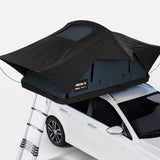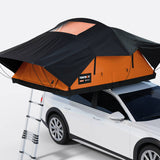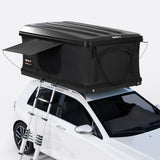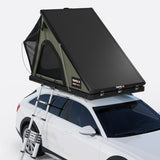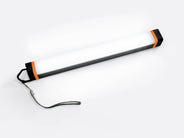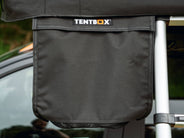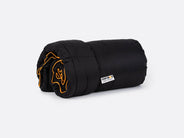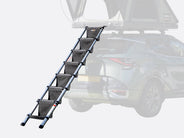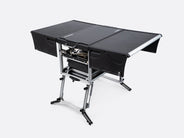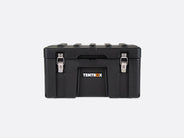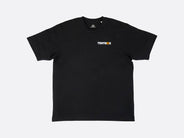Fibreglass vs ABS: which rooftop tent should I buy?
In the world of rooftop tents, nothing divides the community more than the topic of what materials should be used to create your rooftop home. Fibreglass is the more traditional roof tent material, however in recent years many of the more established manufacturers have moved towards ABS.
Here at TentBox, we use ABS plastic to manufacture our Classic model, as it’s by far the more hardy solution for all your overland adventures. We switched from Fibreglass to ABS for the many benefits. However, in the interest of not being biased, we wanted to take a look at the pros and cons of both to weigh up which roof tent will be ideal for you.
Fibreglass vs ABS – which weighs more?
When comparing ABS and fibreglass, it’s natural to consider which material is going to weigh more on top of your car. A lighter rooftop tent will be much more fuel efficient, and will be easier to get onto the roof of your car in the first place.
When it comes to which material weighs more – ABS or fibreglass – ABS is the lighter by far. For the average roof tent, ABS will weigh in at around 60kg, whereas a fibreglass tent of the same size will weigh around 90kgs.
This means that ABS rooftop tents are much more compatible with smaller and larger cars alike. If you’re wondering whether our roof tent will be right for your car, it’s worth considering that the TentBox Classic TentBox weighs 64.5kgs and the TentBox Lite weighs in at 50kg, so they are compatible with most vehicles.

Is ABS better for the environment than Fibreglass?
Fibreglass is plastic that is reinforced with glass fibre, so in terms of it’s environmental friendliness, its creation process much harsher to the environment. It releases toxins in the manufacturing process, which is not only harmful to the people working with it, but also the wider atmosphere.
ABS on the other hand is much safer to form and is easily recyclable since it is a thermoplastic material. Fibreglass is impossible to recycle and ends up filling up landfills.
Which rooftop tent material has better impact resistance?
The UK is full of some amazing, rugged natural landscapes. If you’re planning on going on some off-grid microadventures on rocky terrain here in the UK, there is a chance that your rooftop tent will endure some impact here and there. This isn’t a problem with a sturdy rooftop tent, however it’s important to know which material will be right for the kinds of adventures you plan on going on.
ABS is a far more sturdy and impact resistant material than fibreglass, which can have a tendency to crack under impact. It is plastic-based and was created for the purpose of impact resistance and toughness, so it makes sense that it is a lot more impact resistant.

Which material ages better – Fibreglass or ABS?
Fibreglass was accidentally created back in 1932, and hasn’t evolved that much since it’s conception. Fibreglass can and does suffer from age. Whilst the deterioration sometimes feels minor, with microscopic cracks in the formed fibreglass plastic, overtime these cracks get bigger and separate the fibres and resin that hold them together.
In contrast, ABS is a more modern material that has been especially created to withstand more impact and damage. In this sense, ABS is able to withstand the vibration of the road and remain unscathed by adventuring for longer. You’ll be less likely to have to get your ABS rooftop tent repaired or replaced, compared to a fibreglass roof tent. We also use an anti-UV agent in our ABS, which helps reduce the effects of sun damage.
Why did TentBox choose ABS?
TentBox now uses ABS instead of fibreglass, due to the many benefits listed above. The ABS thermoplastic that we now use can be moulded into much more unique forms, is better for the environment and is much stronger than it’s fibreglass counterpart.
Our rooftop tents have an added UV treatment and a high gloss finish to help reduce the effects of sun damage.
For more information on all the benefits of travelling with TentBox, why not read up on what our brand ambassador Will thinks of adventuring with his TentBox? You can also browse our collection of rooftops tents today for some inspiration.
